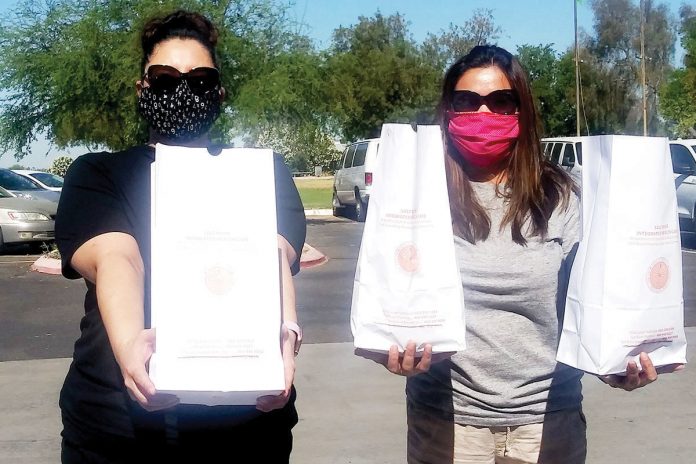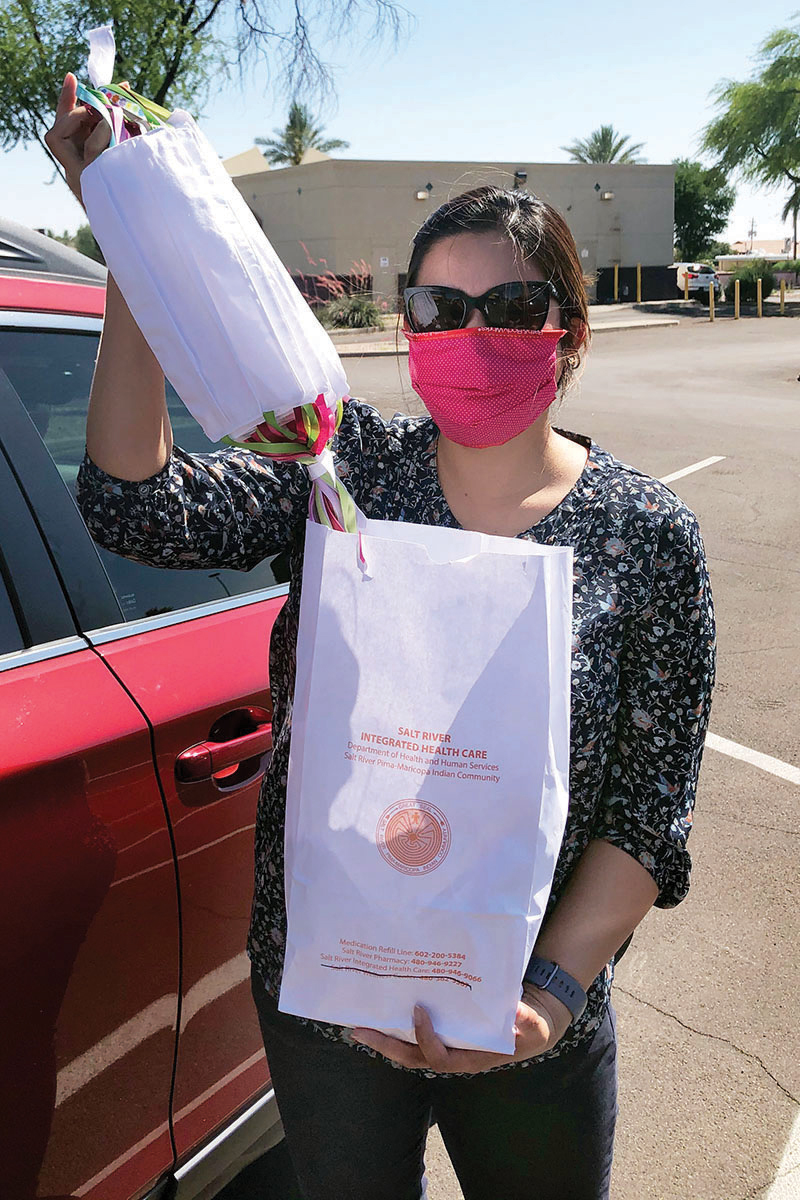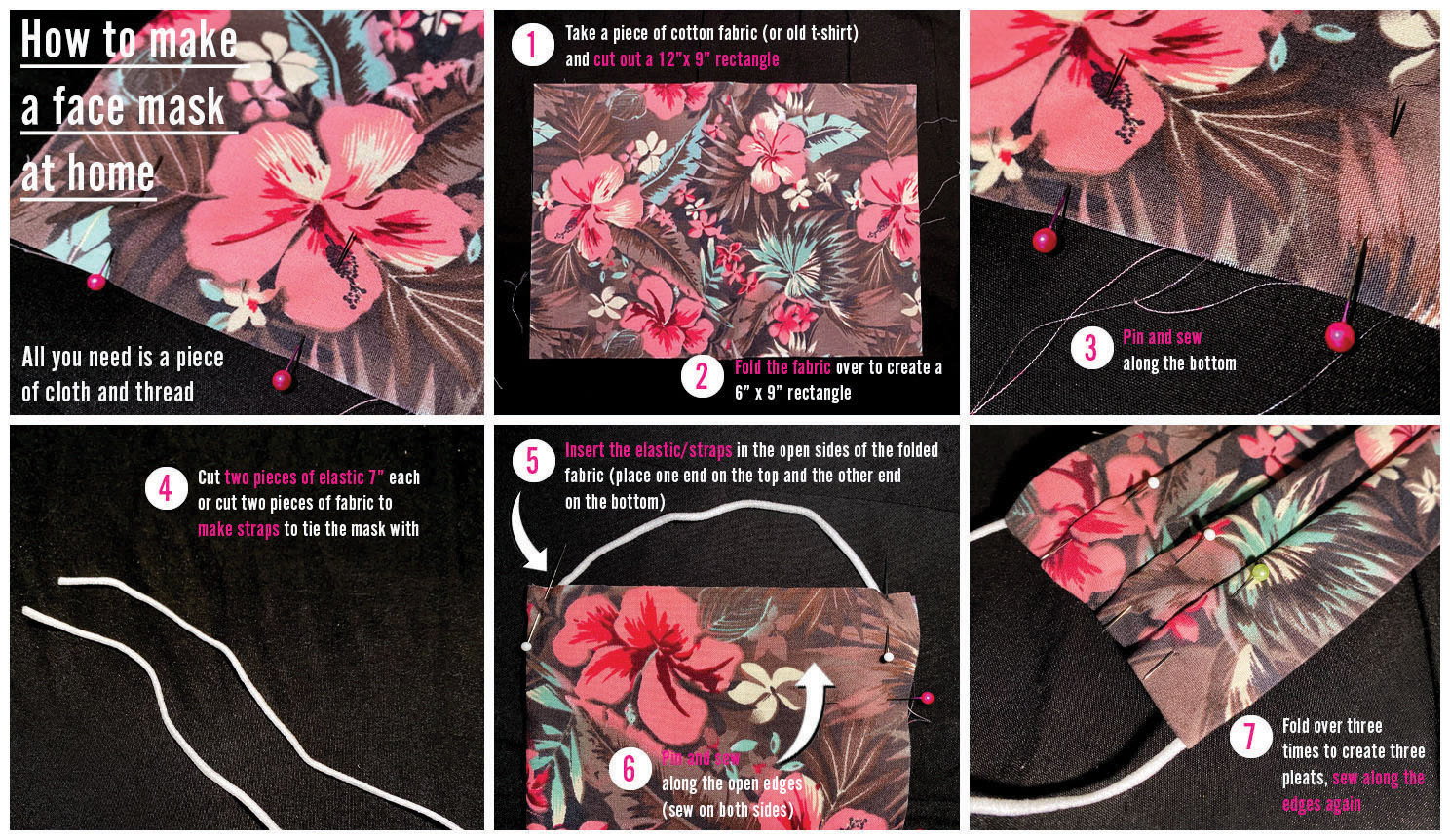
Back in April, United States public health officials recommended that U.S. residents stay at home if possible and wear face masks while out in public places to prevent the spread of COVID-19. Many cities and states either did not enforce the wearing of face masks or opened back up from their quarantine mandates too soon. People tired of staying home flocked back out into society to celebrate Memorial Day, visit restaurants and bars, and attend various events. After the states opened back up, and now with the recent protests against police violence, the number of COVID-19 cases has jumped significantly. In fact, Arizona is one of the states that saw a worrying increase in the number of COVID cases beginning in mid-June.
In May, the Salt River Pima-Maricopa Indian Community created a campaign called “Be a Hero, Stay Zero: Help Make Face Masks.” Since the campaign began, a number of SRPMIC members and employees have stepped up and made hundreds of face masks for SRPMIC members and essential employees to prevent the spread of COVID-19.
“The mask-making project is still underway and still going strong,” said SRPMIC Epidemiologist Nancy Mangieri. “The group of people (volunteers) in the Community is growing and growing; they are very generous with their time, materials and talents. I’d like to recognize these people because they are doing a wonderful job.”
Assistant Community Manager Lena Jackson-Eckert has been a big help in picking up and delivering masks, explained Mangieri. A number of Department of Corrections employees have been making masks as well.
According to an article in the Washington Post, the coronavirus has an average diameter of 0.1 micrometer. E. coli bacteria measure 2 micrometers, and a human red blood cell has a 7.5-micrometer diameter. The coronavirus is easily transmissible and can be transferred through mucus droplets from a cough, a sneeze or when talking. A homemade cloth mask can help prevent the spread of those droplets.
The U.S. Centers for Disease Control and Prevention (CDC) recommends that masks be made with two layers of tightly woven 100% cotton fabric, such as cotton sheets or quilting material. The material should not let light shine through it. A T-shirt will also work in a pinch.
Many do-it-yourselfers have been using coffee filters, air filters and vacuum cleaner bags as filters on their cloth masks. You have to be careful with air filters and vacuum cleaner bags because some of those products can contain fiberglass or other tiny fibers you do not want to inhale.
“You can help yourself by wearing a mask, because the mask covers your mouth and nose, and those are two open areas where the virus can get in,” said Mangieri. “But most important is keeping your hands away from your mouth and nose, and the mask does that. It keeps you from touching those areas.”
It is also important to keep your mask clean. After wearing it to the grocery store or running errands, remove the mask when you return home. Do not touch the front of the mask, only the straps, and avoid touching your face until you place the mask in the washer and have washed your hands thoroughly.
“Wearing a mask is very important because it’s a physical barrier between the virus and you. If someone is talking and/or coughing and they are not 6 feet away, that mask is your only protection. It’s important to keep that mask on, especially when you are with other people—and that includes your family,” said Mangieri. “It is important because we could get the virus at any time and not even know it. So, what is important is to make sure that the mask is there … [as a] physical barrier over our nose and mouth. It’s really very simple; the bottom line is that you are blocking the virus and you are also blocking the germs from your fingers and hands when you are touching your face throughout the day.”
For more information on donating masks, or if you need a mask, contact Angela Willeford at (480) 845-2370 or Nancy Mangieri at (480) 332-3187.







